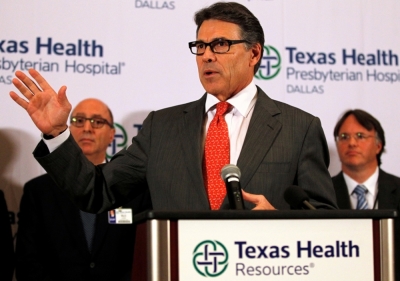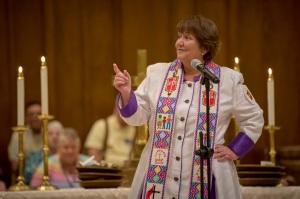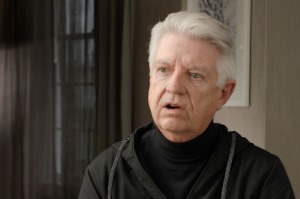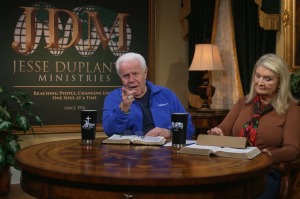Rick Perry's Misstep on Gay Marriage

It is now the "gotcha" question being asked to every Republican presidential candidate: Would you attend a same-sex 'wedding' ceremony?"
Rick Santorum said no, since it would be a violation of his faith.
Marco Rubio said yes, even though he disagrees with it as a Catholic, just as he disagrees with divorce and remarriage, but he would attend rather than hurt someone he loves.
Scott Walker said he had previously attended a same-sex "wedding" reception but stated that marriage was the union of a man and a woman.
Ted Cruz wouldn't answer, but apparently not because of ambiguity on his position, since he has called for pastors to preach about the meaning of marriage this Sunday. Instead, he refused to let the media determine his talking points.
Rick Perry, when asked the question by conservative radio host Hugh Hewitt said he "probably would" attend, but, similar to Ted Cruz, refused to get off his talking points, stating that the real issues we needed to focus on were the economy and national defense.

Of course, as valid as this question is, it can be a no-win question, one that caricatures the candidate in the eyes of potential voters (as either a hater or a compromiser) and one that can hardly be put forward as a main question in determining whether a candidate is ready to be president of the United States.
And so I can appreciate what Senator Cruz and Governor Perry did when asked the question, refusing to be backed into a corner, be it by conservative or liberal media, and also emphasizing what they felt was most important. After all, isn't that what politicians consistently do?
I'm also not minimizing the importance of strengthening our economy and having a robust national defense, especially in light of the many challenges that exist around the globe today.
It's the end of Governor Perry's answer that concerns me, and I say this with respect for him as a committed, God-honoring Christian. His exact words were: "I mean, to me there's two big issues out here in front of us. It's the economy and it's national defense, and if you're not really talking about those two on a regular basis and coming up with solutions on how to get this country back working, how to get this debt under control, and how to put America back into a position of being respected by our allies and being an influence in the world, then you're spending some time that, frankly, doesn't need to be spent on some issues that are secondary or tertiary to the future of this country."
Again, I understand the point Governor Perry was making, but does he really believe that the very definition of marriage is only "secondary or tertiary to the future of this country"?
Does he believe that the larger issues that flow out of the potential redefinition of marriage, which include the meaning and structure of the American family, the home environment in which hundreds of thousands of children will be raised, and the real threat posed to our freedoms of speech, religion, and conscience by homosexual activism, are merely "secondary or tertiary to the future of this country"?
Perhaps preserving (really, rebuilding) the institution of marriage is of paramount importance to the future of our country?
As a fellow-believer in Jesus and a fellow-moral conservative, I appeal to you, Governor Perry, not to capitulate to what is politically correct in our culture today (certainly, that is not how you governed Texas, is it?) and not to sidestep fundamental issues of critical importance to our national wellbeing.
By all means, talk about the economy and national defense, and don't major on the minor issue of whether you'd attend a same-sex "wedding" ceremony.
But please don't downplay the importance of the issue of redefining marriage.
There are few things more important to the nation than standing for marriage and family as God intended them to be.




























